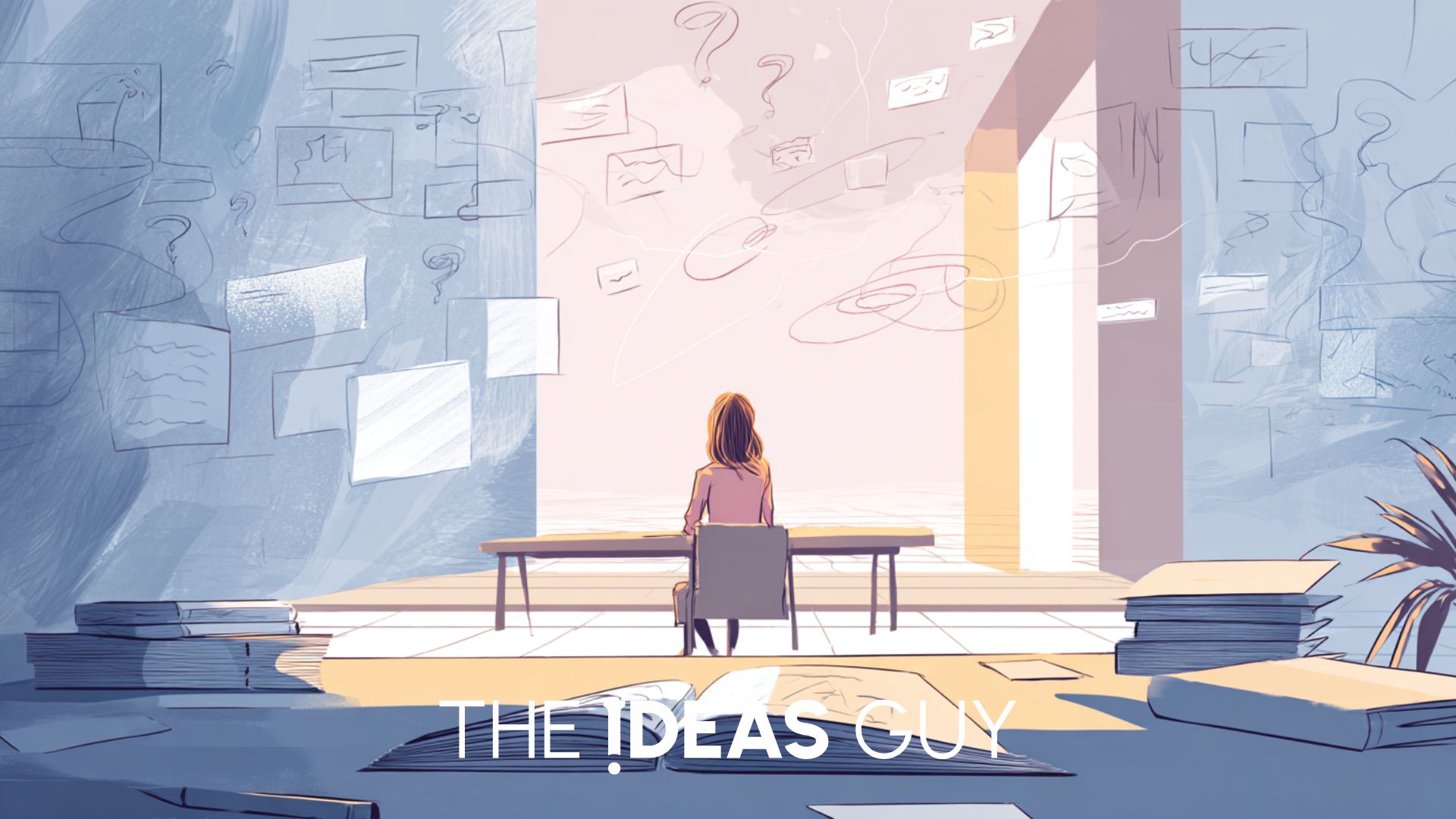Those two small words - "I'm sorry" - carry immense power, yet they often get stuck in our throats, threatening to choke us with vulnerability. In our achievement-obsessed, picture-perfect, Instagram-filtered culture, apologising can feel like an admission of defeat, a crack in the veneer of confidence we've so carefully constructed. The willingness to vulnerably own our mistakes and apologise is actually an incredibly potent expression of strength.
At its core, a sincere apology is an act of courage - the ability to look inward, confront our shortcomings, and take responsibility for the ways we've fallen short or caused harm. It requires empathy, self-awareness, and the humility to acknowledge that despite our best efforts, we don't always get it right. And in that radical transparency lies the path to deeper authenticity.
Think about the last time someone truly apologised to you, stripped of excuses or qualifications. It likely cracked you open, dissipating anger or resentment and replacing it with newfound respect. A heartfelt "I'm sorry" has the power to repair bonds, restore trust, and create space for growth on both sides. It's the reset button that gives relationships a chance to evolve in vulnerability and understanding.
Contrast that with the defensive posturing we so often default to - the reflexive need to justify, rationalise or shift blame when confronted with our mistakes. We scramble for tangential reasons, anything to avoid accountability. "I'm sorry, but..." that insidious qualifier instantly dilutes the sentiment. It's a self-preserving manoeuvre, rooted in the misguided notion that admitting fault equates to weakness.
But here's the paradox: True strength emerges when we lean into our imperfections, not when we fruitlessly try to cover them up. I heard this phrase from somewhere and for all the Googling in the world, I cannot find who said it! Sorry 😉
"Apologising doesn't always mean you're wrong and the other person is right. It means you value your relationship more than your ego."
"Apologising doesn't always mean you're wrong and the other person is right. It means you value your relationship more than your ego."
Making ourselves unshakeably "right" comes at the expense of growth, connection and yes, authenticity. But we have to be careful about oversimplifying the notion of apologies themselves. The truth is that just going through the hollow motions of saying "sorry" - like when my kids mutter it after being repeatedly prodded, or when I've used it as a way to circumvent harder conversations with my wife - that version of an apology actually makes us less authentic, not more.
It becomes yet another performative gesture, devoid of the vulnerability and self-awareness required for a truly meaningful apology to land. We've all been on the receiving end of those half-hearted, Check-the-Box "sorrys" that leave us feeling more frustrated than before. They can be just as disingenuous as the refusal to apologise at all.
The key is to recognise that while the act of apologising is a powerful tool for restoring bonds and creating psychological safety, its effectiveness hinges entirely on the intention and emotional ownership behind those two small words. A superficial, coerced "sorry" might technically meet the letter of the law. But a truly impactful, authentic apology demands looking inward, grappling with our shortcomings, and making the choice to be radically transparent - even when it stings a bit. It's consciously choosing humility and growth over the illusory protection of never being "wrong."
I'll admit, I haven't always embodied this mindset as well as I'd like. As someone with ADHD, I've had my fair share of foot-in-mouth moments or missed commitments that inevitably led to letting people down. My knee-jerk response was typically to protectively rationalise, to come up with plausible-sounding reasons for why I had failed to follow through. It was a deflective reflex, a mechanism to skirt culpability.
But over time, through honest self-reflection, I realised that refusal to apologise stemmed from insecurity and ego - the need to preserve an inflated sense of self, even at the cost of accountability. It was a superficial sticky plaster that allowed me to avoid vulnerability but ultimately eroded my relationships and self-respect.
The shift came (and it is a journey to rather than a destination I have arrived at) when I reframed the act of apologising not as an indictment of my self-worth but as an expression of it. With each stumbling yet sincere "I'm sorry," I chipped away at the facade of pretence and leaned into something radically empowering: self-compassion.
Because at the end of the day, refusing to apologise is an act of self-rejection. It's shunning the most fundamentally human part of ourselves - our inescapable imperfections. Apologies allow us to embrace our whole selves, warts and all. They are amplifiers of self-awareness and emotional maturity.
This willingness to take ownership and apologise is an invaluable asset. In fields like education, healthcare or customer service for instance, interpersonal trust and psychological safety are absolutely paramount. And there's perhaps no faster way to erode that foundation than dismissing or minimising valid grievances or mistakes.
One of my favourite examples comes from the aviation industry's revolutionary shift to a "just culture" that prioritised accountability and learning over punishment. By encouraging pilots, ground crew and air traffic controllers to openly report errors or safety concerns without fear of retaliation, the industry's safety record improved exponentially.
This move was revolutionary. It replaced a system focused on blame and punishment – which suppressed reporting of errors – with a focus on understanding why mistakes occur. This meant that the team could come forward about safety lapses without fear of losing their jobs. This openness wasn't about excusing mistakes, but about identifying the root causes and addressing them to prevent future issues.
The impact of this change was profound. By gathering data on potential risks, the aviation industry could proactively fix vulnerabilities in protocols, communication systems or even aircraft design. It also built greater trust among aviation professionals, promoting collaboration focused on continuous improvement. The result is the impressively safe system of air travel that we enjoy today. The "just culture" model offers lessons that extend far beyond the aviation industry too.
At its core, establishing this culture of psychological safety hinged on normalising apologies - reframing them not as indictments of incompetence but as vital data points on the path to continuous improvement. The simple willingness to own up to mistakes created an environment where everyone could learn and grow together.

Image Source: DALL-E: in 16:9 ar that represents psychological safety. It needs to be photorealistic
In our personal lives, a similar mindset shift can work wonders. It's no secret that most conflicts in families, friend groups or romantic partnerships often trace back to minor grievances or miscommunications that snowballed out of control. But imagine if we collectively got better at spotting those moments early and short-circuiting the drama through timely apologising and forgiveness.
Because apologies possess a subtle super power - they disempower resentment. When we have the humility to say "I'm sorry, I messed up," it becomes infinitely harder for grievances to calcify into icy silences or lasting grudges.
Dr. Harriet Lerner, renowned psychologist and author of Why Won't You Apologise?, attests that "The need for apologies and repair is a singularly human one---both on the giving and receiving ends. We are hardwired to seek justice and fairness (however we see it), so the need to receive a sincere apology that's due is deeply felt. We are also imperfect humans and prone to error and defensiveness, so the challenge of offering a heartfelt apology permeates almost every relationship.." Essentially, apologies create the psychological safety required for forgiveness to take root.
So how can we get better at apologising despite the discomfort? A good first step is to examine the stories we tell ourselves about what an apology means.
For many of us, there's a subconscious association between saying "I'm sorry" and being "wrong" - an erroneous binary that turns apologies into high-stakes admissions of guilt. But the reality is that apologising is simply about acknowledging impact, not assigning blame. We can apologise for hurting someone without labelling ourselves as universally bad or wrong, reserving space for nuance.
Similarly, many resist apologising out of misguided notions of intent versus impact. "But I didn't mean it like that!" As if good intentions inherently absolve any negative consequences. But the truth is, our impacts often have roots that extend beyond our control or awareness. Preemptive defensiveness around intentions misses the point - a loved one is hurting, regardless of what was meant. A sincere "I'm sorry I caused you pain" acknowledges that reality with empathy.
Another barrier is our tendency to attach outsize significance to the act of apologising itself. We build it up as this monumental, vulnerability-exposing event when in reality, it can be as simple and low-stakes as hitting the mini reset button on a relationship. "My bad, I spoke out of turn earlier. I'm sorry about that." Or, "Hey, I shouldn't have raised my voice at you. That was uncalled for. I apologise." Small recalibrations that realign us and allow us to move forward without dragging resentments behind us.
Because at the end of the day, apologising is about assuming a stance of humble confidence. Confident enough to admit that we don't always get it right, yet humble enough to commit to doing better. It's a brave willingness to meet ourselves and others with radical candour and empathy.
"Just because you make a mistake doesn’t mean you are a mistake."
Georgette Mosbacher
This doesn't mean we have to become doormats who apologise for everything. There's a balance to strike between accountability and misplaced self-flagellation. Ideally, we want to normalise and destigmatise apologies so they become the norm for minor missteps, not just grave transgressions. The more we integrate this vulnerability into our daily lives, the less it becomes a heavy emotional lift.
Because something powerful happens when we routinely apologise for missteps - we give others permission to do the same. We role model emotional courage, inviting those around us to embrace their whole, imperfect selves too. Over time, dysfunctional cycles of pride and resentment begin to lose their grip as we create cultures of relentless authenticity.
It's nothing short of a revolution, this idea that saying "I'm sorry" isn't an indictment of weakness but a powerful declaration of our most admirably human traits - humility, accountability, empathy. Those two small words don't diminish us but allow our true character to shine through.
So the next time that familiar pang of defensiveness arises when you know you've messed up, I challenge you to lean into the discomfort. Pause, take a breath, and with humble confidence, say "I'm sorry." You might be surprised at how much lighter you feel. In that act of vulnerability lies the gateway to deeper authenticity - in our relationships, workplaces and ultimately, with ourselves.
It’s hard to say sorry. There is no doubt about that. It’s probably why Elton John, Outkast, Justin Bieber, Nirvana and so many others have written words to that effect!
On the balance of it, here are a few ways to make it a tiny bit easier:
1. Practice Makes Painless: The more you apologise for minor missteps, the easier it becomes. Treat apologies like exercising a muscle - the regular practice desensitises you to the initial discomfort. Over time, sincerely saying "I'm sorry" for small blunders will feel as natural as breathing. Normalising apologies in your daily life transforms them from daunting events into routine course corrections. Just don’t force them.
2. Ditch the Drama: Sorry doesn't have to be a showstopper. Often, we build up apologies as grandiose affairs when a simple, heartfelt contrition can suffice. Strip away the melodrama and self-flagellation. Keep it concise, sincere, and focused on taking responsibility - not punishing yourself. The sooner you apologise, the sooner you can move forward.
3. Separate Intent from Impact: It's easy to get entangled in the intentions behind our actions. However, the true measure is how our words and deeds land with others. An apology recognises the reality of someone's hurt, regardless of your intent. "I'm sorry I caused you pain, even though I didn't mean to" validates their experience with empathy.
4. Reframe as Courage, Not Weakness: Contrary to cultural stigma, apologising is an act of bravery, not cowardice. It takes vulnerability and strength of character to acknowledge missteps. Embracing your imperfections with humility and accountability is the hallmark of confidence, not fragility. Shift your mindset to see apologies as emotional fortitude.
5. Befriend Your Flaws: Nobody's perfect – we all mess up occasionally. Extending compassion to yourself for inevitable human shortcomings makes repentances feel less like indictments and more like opportunities for growth. Be gentle yet accountable with yourself. Befriending your flaws allows for authentic apologies to flow freely when needed.
In essence, saying "I'm sorry" - though discomforting at times - is a humble superpower that strengthens our relationships, workplace dynamics and personal growth. It's a skill worth internalising, for it lies at the heart of authentic living. I will finish with a quote from social justice and human rights lawyer, Bryan Stevenson and a link to his brilliant TED talk - it's worth 23 minutes of anyone's time.
“Always do the right thing even when the right thing is the hard thing.”
Bryan Stevenson

Further Reading
Discover more interesting articles here.
.png)



